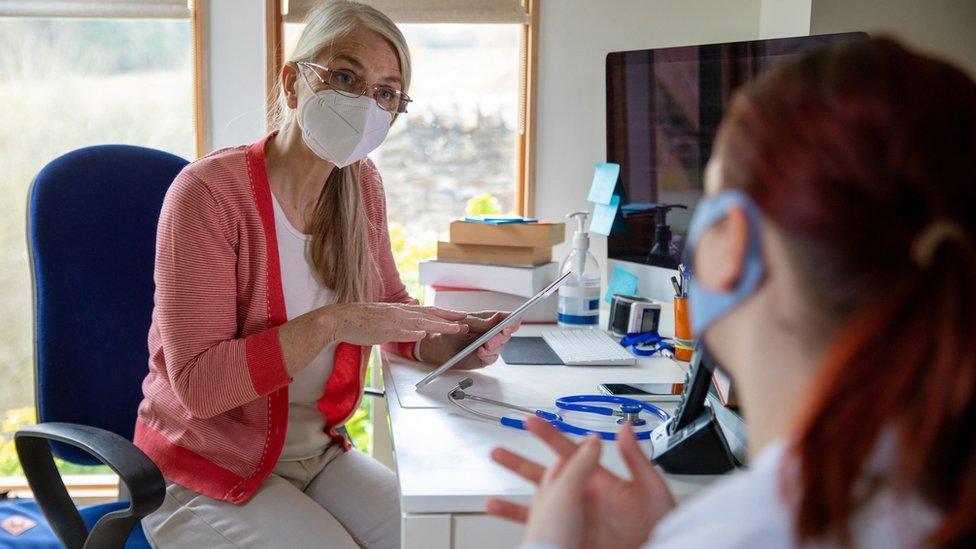Scottish NHS jobs targets unlikely to be met, says Audit Scotland
- Published
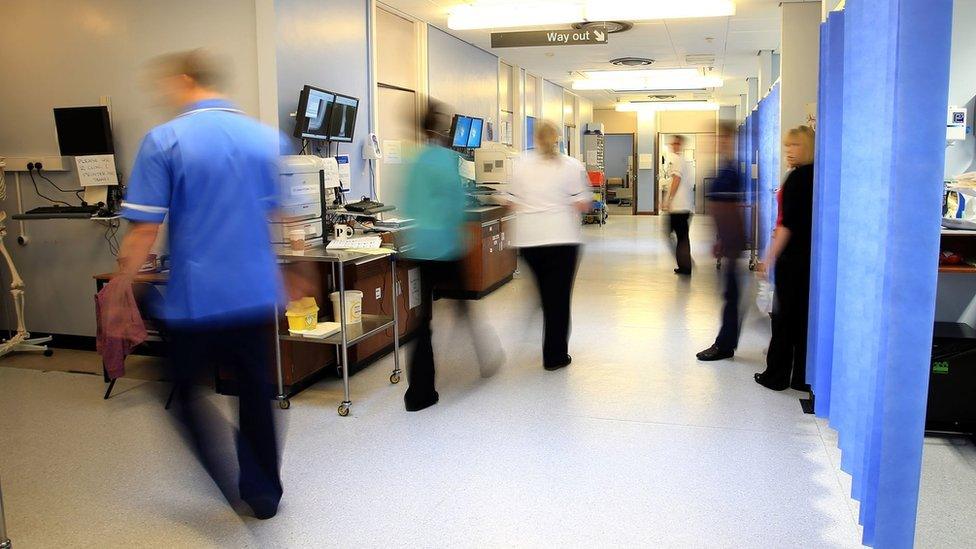
NHS jobs targets under Scotland's Covid recovery plan are "unlikely to be met", Audit Scotland has warned.
The public spending watchdog urged ministers to be "transparent" about hospital backlogs and provide health boards with achievable targets.
And it called for more support for patients stuck on long waiting lists.
Health Secretary Humza Yousaf said it would take years for the NHS to recover, but opposition MSPs described his record as "shambolic".
The Scottish government's plan was designed to change how services are delivered and reduce the backlog of patients from the pandemic, when some health boards postponed non-urgent procedures.
It detailed ambitious recruitment targets, including hiring 800 new GPs by 2027.
But Audit Scotland said that aim was "not on track" and posed a risk to the recovery of primary hospital care.
Its report also found that the GP workforce increased by just 113 between 2017 and 2022.
It said aims to recruit 1,000 additional mental health staff were "at risk" due to cuts of £65m from primary care and £35m from mental health services.
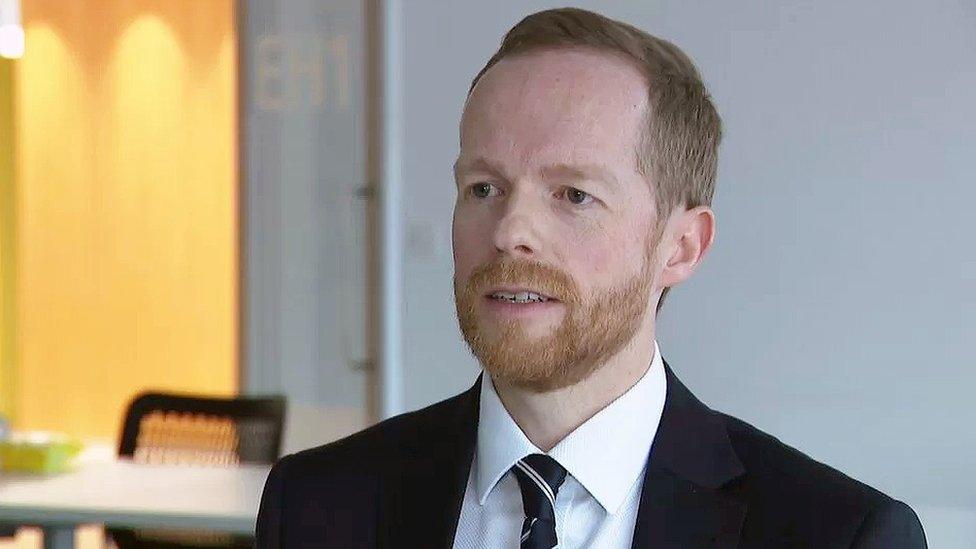
Auditor general Stephen Boyle said NHS staff remain under "severe pressure"
Stephen Boyle, Auditor General for Scotland, said the government's NHS recovery plan did not contain "detailed actions" that would allow progress to be accurately measured.
He said this included "robust modelling" to understand demand and capacity.
Mr Boyle said the treatment backlog continued to increase in the 18 months since the plan was published.
"NHS staff remain under severe pressure and the Scottish government is facing tough choices," he said.
"Money is tight but investment is needed in recovery. That means ministers have to prioritise which NHS aims can realistically be delivered. And they need to be more transparent about the progress they're making."
The Auditor General also urged ministers to clearly explain to the public what those NHS pressures meant for the level of service they can expect, including waiting times which soared over the winter.
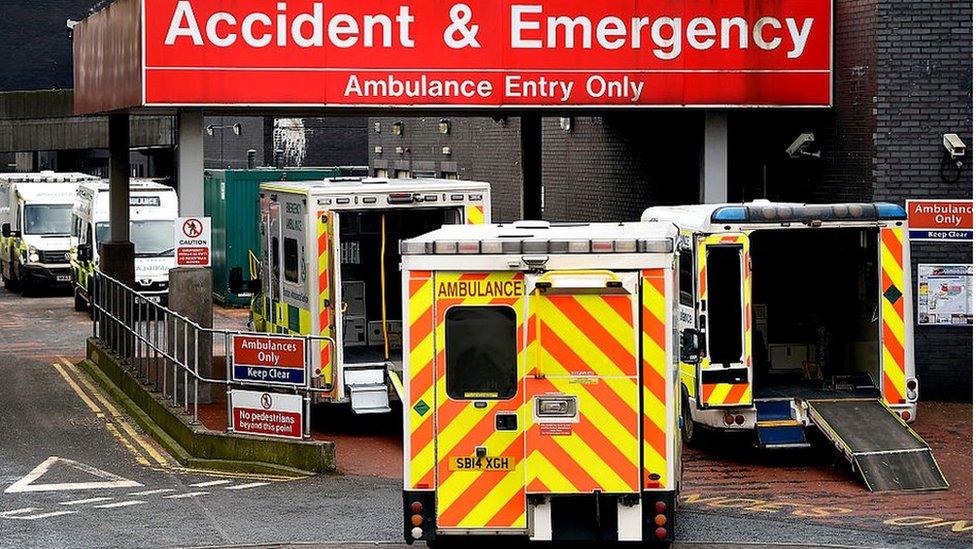
Waiting times at emergency departments across Scotland reached record levels this winter
The annual report on the state of Scotland's health service said the care backlog continued to increase, with more people added to waiting lists than were being removed, while operations sat at 25% below pre-pandemic levels.
It also found health boards needed to make more than £620m of savings to break even in 2022/23.
Only three - NHS Forth Valley, NHS Shetland and NHS Western Isles - were predicted to balance the books in the new financial year.
Meanwhile, it also highlighted delays to the network of National Treatment Centres (NTC), which were meant to provide an additional 40,000 procedures by the end of 2026.
Audit Scotland said those targets were now less likely to be met.
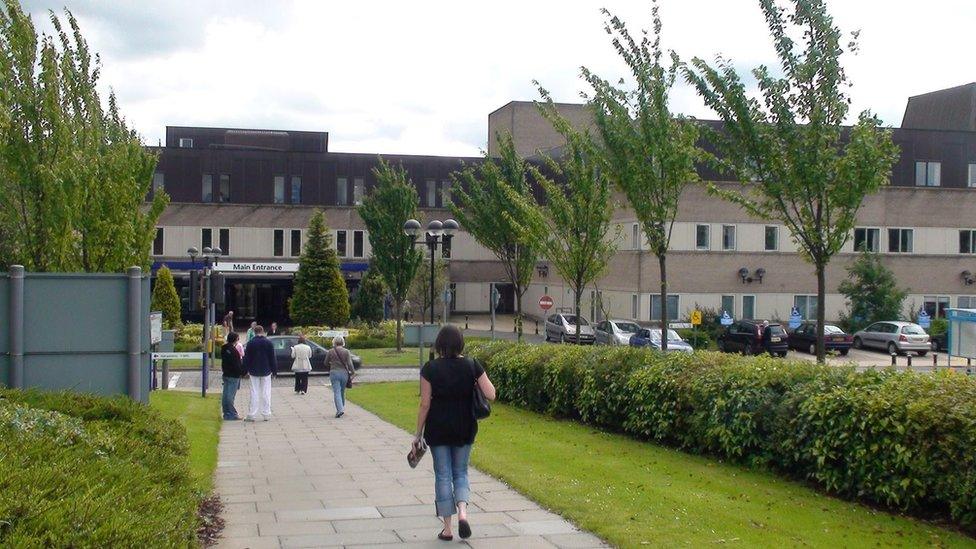
The new treatment centre planned for St John's Hospital in Livingston was scheduled to open in 2025 but is now forecast to open in 2027
BBC Scotland this week revealed the NTC in Livingston was originally projected to cost £70.9m but estimates now suggest the new facility will cost £184m.
The Audit Scotland report said the three NTCs that were due to open last year in NHS Fife, NHS Forth Valley and NHS Highland were now expected to open this year.
But it added others were unlikely to open until late 2027 or early 2028.
Responding to the report, Health Secretary Humza Yousaf said it reaffirmed the "challenges and successes" of the Covid recovery.
He added: "We have never hidden the scale of the task and recovery will not take weeks or months, but years.
"That recovery, outlined in our £1bn plan, is backed by record investment and has delivered real success, including the Covid-19 vaccination drive and a significant reduction in the number of two-year outpatients waits.
"We are determined to build on this and will report on progress annually, ensuring updates are as specific as practicable."
However, opposition politicians condemned Mr Yousaf and criticised his decision to enter the SNP leadership race.


What stands out in this report is how critical Audit Scotland is of the government's Covid recovery plan.
When it was first published in 2021, external, health boards were not consulted, despite being challenged with clearing the backlog.
The report says it does not seem feasible to meet commitments to scale up planned operations by more than 10% above pre-Covid levels.
Hospitals are still having to push back on routine care to focus on urgent cases and a series of National Treatment Centres, a key part of creating more capacity, are running behind schedule.
The Auditor General says the government needs to start being honest with patients about how long they will have to wait.
The big problem with the recovery plan, says the watchdog, is that there is not enough robust data and modelling on demand and capacity.
That makes it hard to measure whether things are working or not and where more targeted efforts are needed.
Of course, Scotland is not unique, and these pressures are being felt right across the world.
Designing a health service that is fit for the future is no easy task.
But alongside a growing number of frontline medical professionals, Stephen Boyle says that the government needs to bring the public into a frank and open conversation about what the NHS can realistically deliver.

Scottish Conservative health spokesman Dr Sandesh Gulhane said the "scathing report" showed the scale of the challenge facing the service under Mr Yousaf.
The GP added: "Not only is his flimsy NHS recovery plan inadequate, but there is trademark SNP lack of transparency about his strategy.
"That is leaving suffering patients and my burnt-out colleagues on the frontline in the dark about what progress - if any - is being made on reducing the huge treatment backlogs."
Labour health spokeswoman Jackie Baillie said the report highlighted "astronomical wait times and multiple missed targets".
She added: "This report lays bare the shambolic state of our NHS and the all-encompassing need to support the heroic frontline staff working day and night to keep it afloat.
"The thousands of Scots who have lost loved ones under Mr Yousaf's stewardship of the NHS will be offended that instead of stepping back from his current role, he is now searching for a promotion."
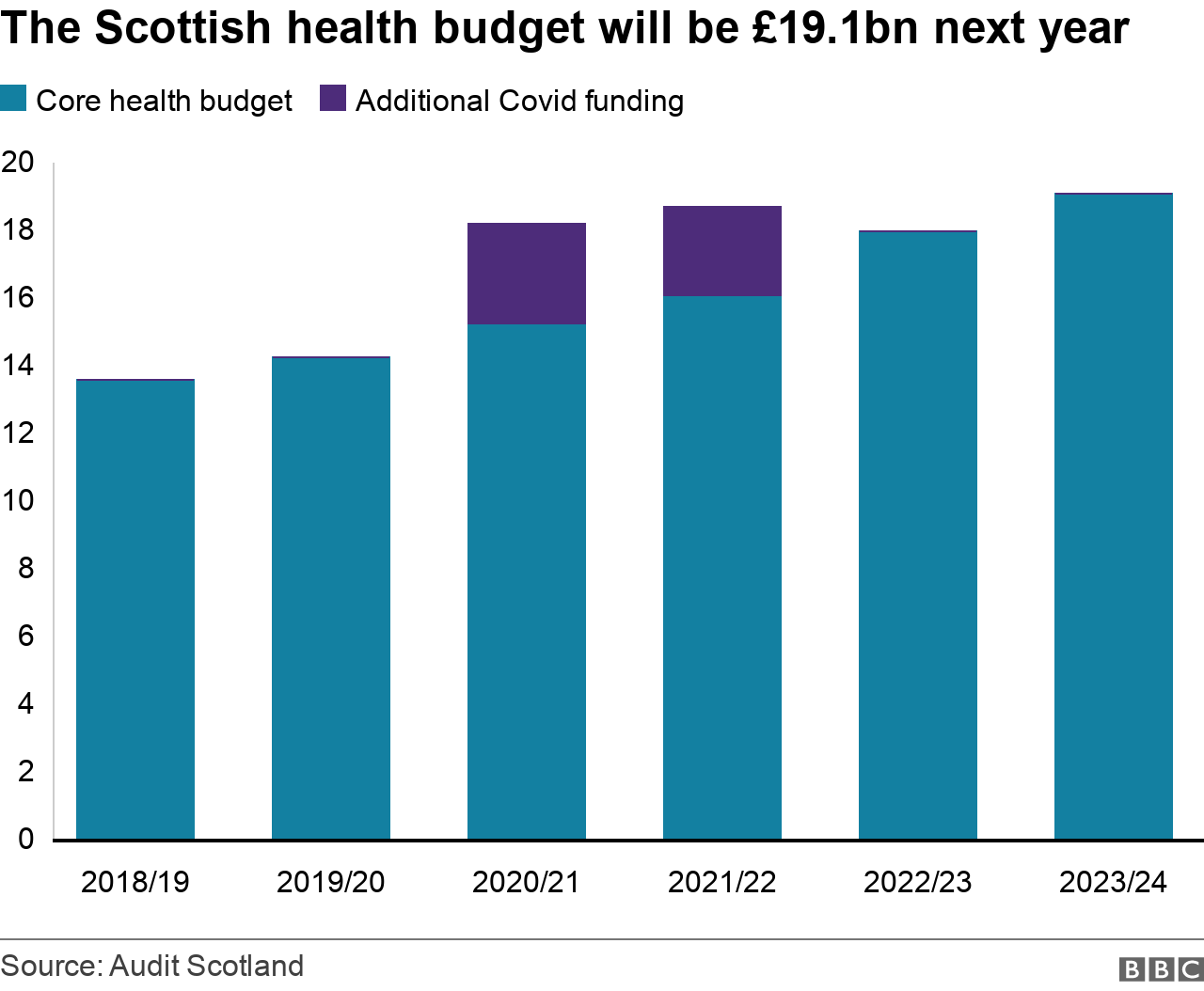
Scottish Liberal Democrat leader Alex Cole-Hamilton said: "Today's report makes for a damning verdict of the failing NHS recovery plan and Humza Yousaf's time as health secretary.
"Record waiting times are getting worse and worse and every corner of the health service is in trouble, and now we learn that the staff needed to ease the pressure aren't going to arrive."
The Royal College of Nursing (RCN) welcomed the assessment of the staffing "crisis" in the NHS.
RCN director Colin Poolman said: "We need effective workforce planning that is based on population need, implementation of Scotland's safe staffing legislation and fair pay that truly reflects the safety critical role that nursing staff play."
He also called for a retention scheme to tackle the "exodus of nursing staff" from the profession to be made a priority for the government's new Nursing Taskforce.
- Published1 November 2022

- Published11 May 2022
